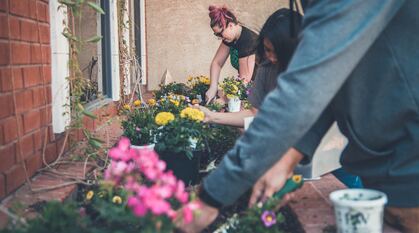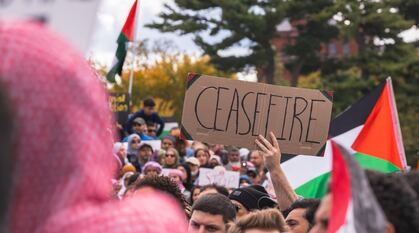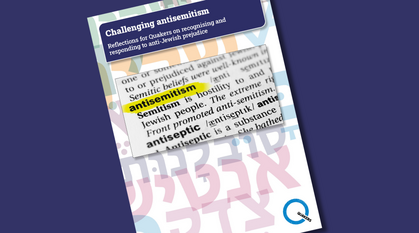Quaker faith in action in the 2010s: highlights from the decade
At the end of a tumultuous decade, Suki Ferguson looks back at just a few of the highlights.
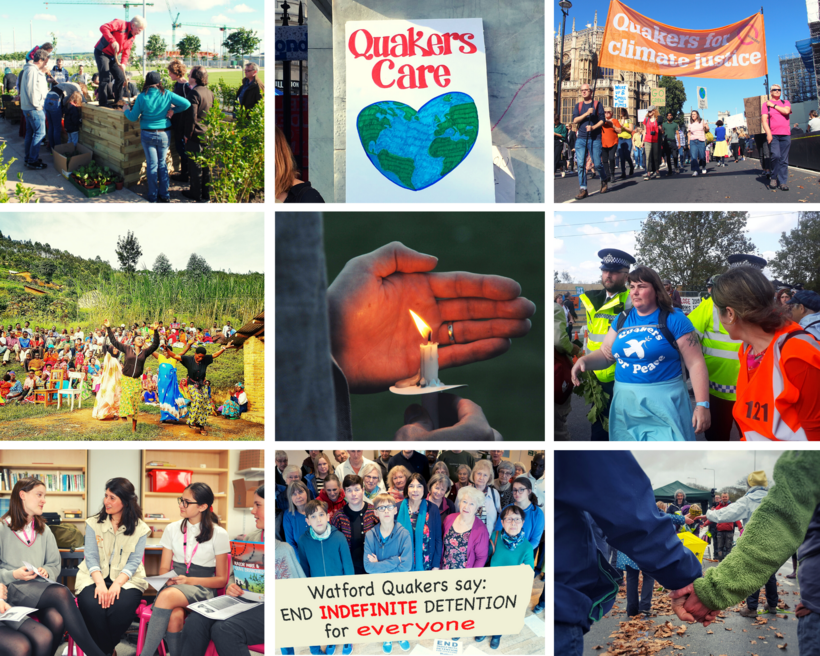
British Quakers have been advocates for peace, equality, sustainability and integrity since the 17th century. So what have they been up to recently?
In compiling these brief headlines from the past ten years, I've not covered so much of the quiet and determined work that Quakers have undertaken as individuals and as meetings – but I hope this brief overview serves as a starting point for
further exploration. Enjoy!
In 2010
Under the Equality Bill, civil partnerships become possible on religious premises, including Quaker meeting houses. Quakers are influential advocates for same-sex marriage in the political process: Hansard, the record of UK parliamentary debates, shows at least nine references to Quakers in a single parliamentary debate.
After ten years of working together, Quakers formally partner with Kenyan peacebuilding groups. Now named Turning the Tide East Africa, this partnership supports initiatives grounded in nonviolence, enabling violently divided communities to heal.
Quakers and ecumenical partners campaign to have produce from illegal Israeli settlements labelled more clearly, so that UK shoppers can choose to avoid buying produce cultivated on occupied Palestinian land.
Quakers formally begin to "explore... the role of our economic system, and the relationship between violent conflict and our failure to live sustainably in the world".
In 2011
Quakers in Britain commit to becoming a sustainable low carbon community, and recognise that the climate crisis is a result of global economic injustice. Following this decision, Sustainability Grants support local Quaker meetings to install solar panels, insulate old buildings and set up community initiatives such as the Dundee Urban Orchard (pictured below) and the Bamford Quaker Retreat Centre.
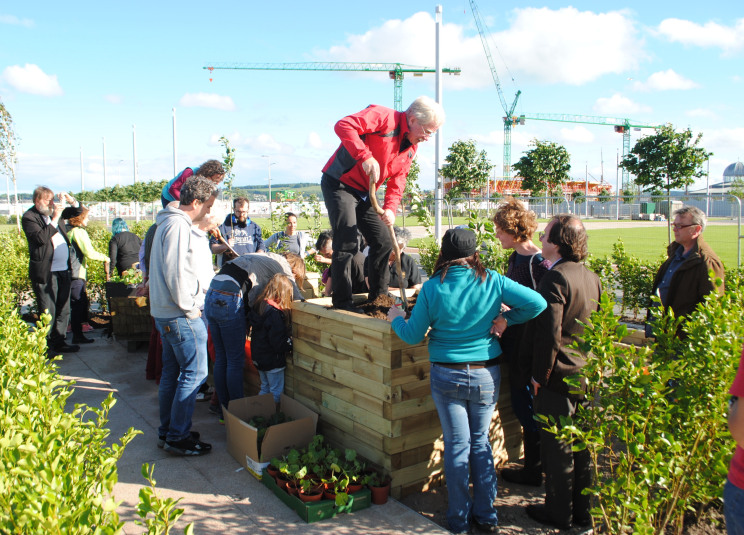
In London, an ambitious low carbon refurbishment of Friends House in Euston begins. These and other changes reduce carbon emissions by 29%, compared with 2009, by 2017.
Quakers in Britain agree to boycott products from the Israeli settlements in the West Bank, which are illegal under international law. The decision generates a lot of criticism but also some amazing responses, all while drawing public attention to the issue.
For the first time, the UN Committee on the Rights of the Child discuss the rights of children whose parents are imprisoned. The committee pays tribute to the Quaker United Nations Office (QUNO) for its persistence in raising this issue and providing evidence for its inclusion.
Quakers in Britain gives campaigners protesting the DSEI arms fair in London free meeting space, enabling them to form a coalition and become more visible as a result. Their actions draw coverage from Channel 4 News, BBC One Show and the Guardian.
Quakers celebrate the 350th anniversary of the first written declaration of a Quaker commitment to peace, and reaffirm living peacefully in the 21st century, stating that "we nurture the seeds of peace by responding to hatred, violence and bitterness with acts of love, kindness and forgiveness".
50 years of Quaker peace advocacy work at the UN contributes to a landmark ruling at the European Court of Human Rights: conscientious objection is protected for the first time in its 60 year history.
Quakers join the Occupy movement (pictured below), holding regular meetings for worship outside St Paul's Cathedral. Quakers in Britain states its support of Occupy as police clear the camp, saying “The idea that another world is possible is crucial for us too. We cannot accept the injustice and destructiveness of our economic system as it is."
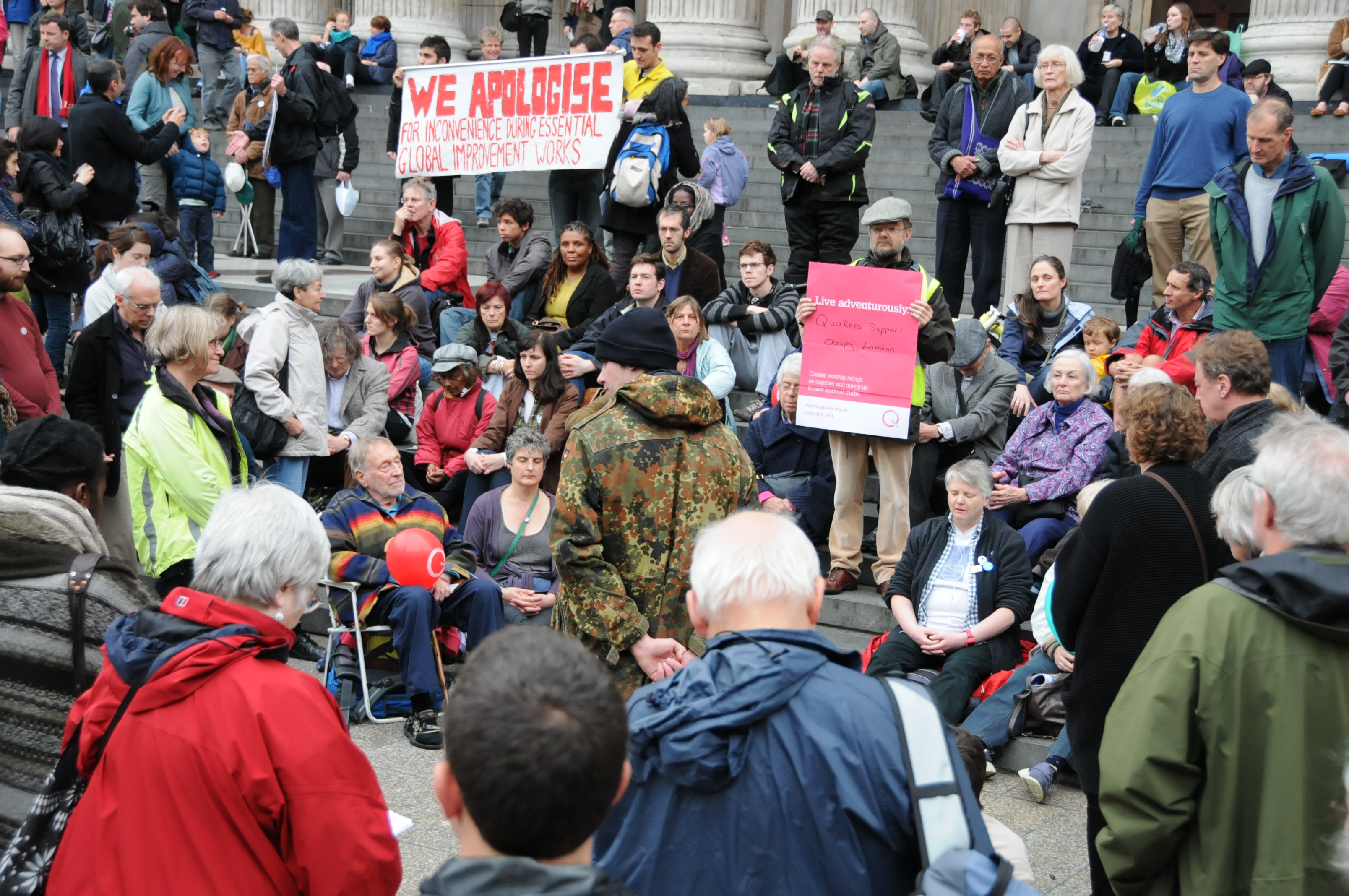
In 2012
Quakers from around the world gather in Kabarak, Kenya, to offer a collective response to climate change. Together they say “We have heard appeals from peoples of the Arctic, Asia and Pacific… we are called to be patterns and examples, in a 21st century campaign for peace and ecojustice, as difficult and decisive as the 19th century abolition of slavery." Read the Kabarak call in full (PDF).
The first Quaker civil partnership takes place at Friends House Euston, an important step on the path towards same-sex marriage.
In 2013
Quakers in Britain becomes the first UK institution to commit to fully divesting funds from fossil fuel extraction companies. The move encourages other faith groups, charities, organisations and institutions to review their investment in fossil fuel extraction for the first time.
As the government advocates for a 'military ethos' in schools, Quakers launch Peace Week. The first Peace Week delivers 400 lessons on peace and mediation to primary school pupils. Since then Quakers have delivered many more and published a Peace Week educator's pack.
Friends House wins the title of 'London sustainable restaurant of the year' by the Sustainable Restaurant Association. Offering food that reflects its Quaker values, the accolade is given for the use of fairly traded, local, organic, free-range and sustainable products wherever possible.
In 2014
Quakers celebrate the first same-sex Quaker marriages after historic legislation is passed in Scotland, England and Wales. Quakers in Britain and civil servants work together to ensure that civil partnership conversions into marriages can also be held in Quaker meeting houses.
Quakers in Britain create an image of the Tower of London poppy exhibition showing what it would look like if it included the global dead of World War I. This is featured in a front-page
Guardian article.
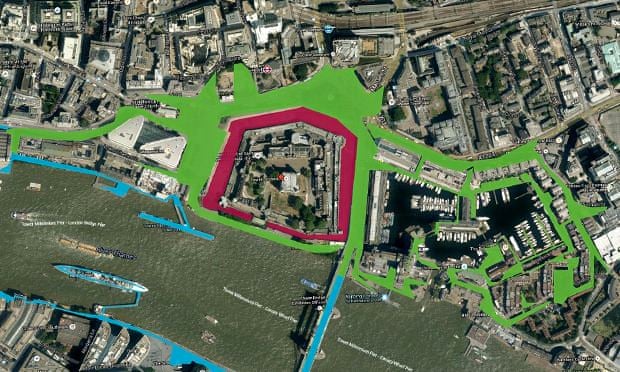
Lancaster Quaker Meeting set up the Quaker Living Wage Campaign to champion the Living Wage among area meetings and Quaker employers. Seeing it as part of the Quaker commitment to equality, many Quaker organisations have now become Living Wage accredited.
Quakers in Britain becomes one of the first churches to call for the UK government to recognise Palestine as a nation state on the same basis as it recognises Israel. Two months later the UK parliament passes a historic vote to recognise the state of Palestine.
The new tide of militarisation (PDF) report is published, sparking discussion on how government policies reinforce military values. The report aids Quakers as they successfully challenge armed forces initiatives in childrens' schools, and organise peaceful responses to celebrations of war on Armed Forces Day.
In 2015
A growing number of Quaker meetings become involved in supporting their local foodbanks, whilst campaigning against cuts to social security. Quakers in Britain and partners contribute some important amendments to the Welfare Reform and Work Bill.
The success of Quaker peacebuilding work in Kenya enables Kenyan peacebuilders to extend their nonviolent social change training network to Rwanda and Burundi.
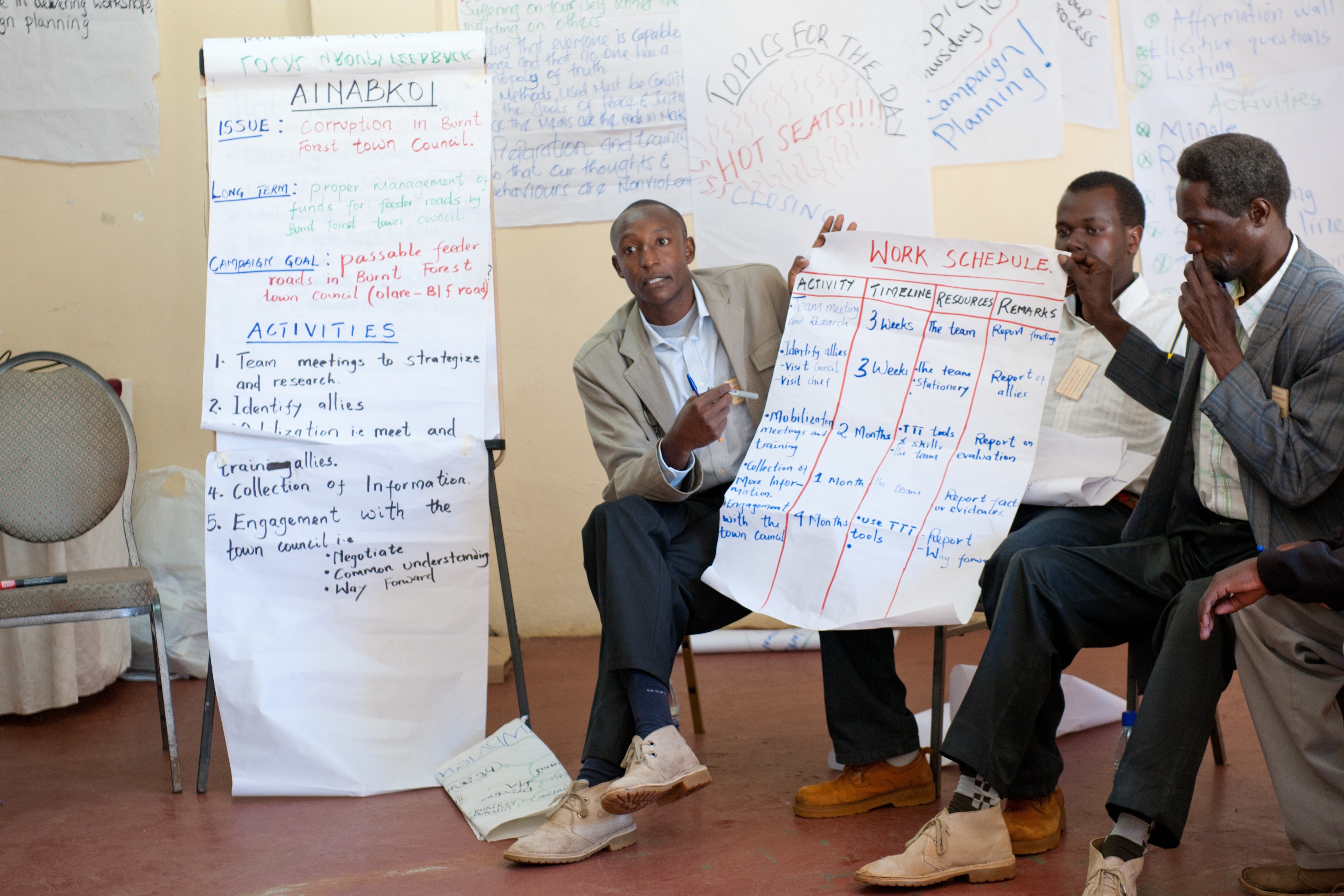
Ealing Quaker Sam Sender is arrested while taking direct action against Heathrow's expansion. When he is sentenced Quakers in Britain issue a statement of support: "His action is consistent with the commitment of British Quakers to become a low-carbon community."
Quakers in Britain releases short film The Unseen March exposing how the armed forces publicise the military in school classrooms. The film inspires a filmmaker to begin work on a feature-length documentary, War School.
Quakers in meetings around Britain work collaboratively to devise ten principles for a new economy (PDF), saying “our vision is rooted in compassion, our sense of the sacred in everything and desire for universal peace".
Quakers co-produce Fly Kites Not Drones, a resource which helps school children explore the ethics around armed drones, featuring relatable case studies from children in Afghanistan.
In 2016
People seeking refuge in the UK are welcomed by Quakers in Leeds, Colchester, Oxford, Norwich, Darlington and Middlesbrough. Friends offer living spaces, hot meals, and legal, financial and moral support.
Quakers launch a series of new economy booklets and
reading group workshops. Within two years Quakers establish more than 50 reading groups to learn about changing the current economic system.
Five Quaker organisations from Europe and the United States call on their governments to say no to the Transatlantic Trade and Investment Partnership (TTIP), the controversial mega trade deal being negotiated between the European Union and the United States.
After the EU Referendum, Quakers in Britain says “there is now a great need for bridge-building, for reaching out to one another in love, trusting that below the political differences lie a shared humanity and a wish for flourishing communities".
Quakers in Scotland and Forces Watch petition the Scottish government for greater scrutiny of armed forces visits to state schools in Scotland. The Scottish Parliament's public petitions committee are pressing the government to study the impact of these school visits.
In 2017
Quakers around Britain take part in a peaceful international direct action on the day of Donald Trump's inauguration as President of the USA. Dropping banners over bridges across the nation, they call on people to 'build bridges not walls'.
Quaker Sam Walton is arrested while attempting to disarm a war plane bound for Yemen. Quakers in Britain issue a statement of support, saying "Quakers value all human life and view war as failure... We deplore the continued UK arms sales to Saudi Arabia".
A third of Quaker area meetings in Britain now have zero investment in fossil fuels.
Quakers in Britain call for a ban on fracking, following Quaker resistance to fracking in Lancashire and Sussex. Meanwhile, over 100 Quakers meet for worship atop historic Pendle Hill in protest against potential fracking in the surrounding area.
Quakers in Lancashire establish No Faith in Fracking, an interfaith group who hold a monthly silent vigil outside Preston New Road fracking site. Their peaceful yet determined rejection of fracking contributes to the closure of the site in September 2019.
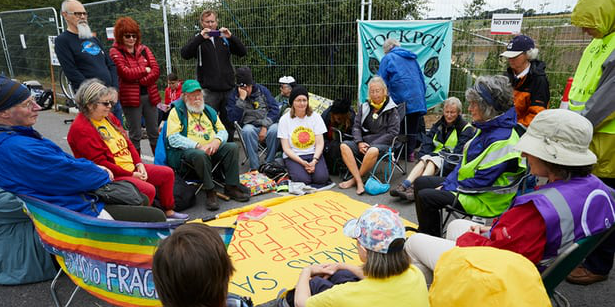
Quakers in Britain send a British Quaker faith representative to the UN nuclear ban treaty negotiations, where an agreement between 140 nations heralds a global shift away from nuclear weapons. Quakers continue to lobby the UK government to sign up.
Quakers in Britain release their Sanctuary Everywhere Manifesto (PDF), calling for an end to immigration detention and deportation, and for a culture of welcome in the UK.
Hackney Quakers make amends for disowning Benjamin Lay, a Quaker who was a visionary advocate for the abolition of slavery 300 years before.
The Quaker Housing Trust celebrates 50 years of funding projects that meet the housing needs of people who are often overlooked. Since 1967 they have funded hundreds of community initiatives, both Quaker and non-Quaker; as of 2017 a third of the projects funded involve creating accommodation for refugees and migrants.
In 2018
Quakers in Britain recruits its first ever Inclusion and Diversity Project Coordinator to help Quakers answer the faith community's 2017 decision to “examine our diversity".
Quakers publish Owning power & privilege: a toolkit for action (PDF). More than 2,000 copies later, the toolkit has supported Quaker groups as they reflect on identity and belonging.
Huddersfield Quaker and climate activist Ian Bray co-founds Extinction Rebellion. Quakers join him at the first Autumn Uprising, choosing to be arrested to raise awareness of the need for urgent and far-reaching government action on the climate crisis.
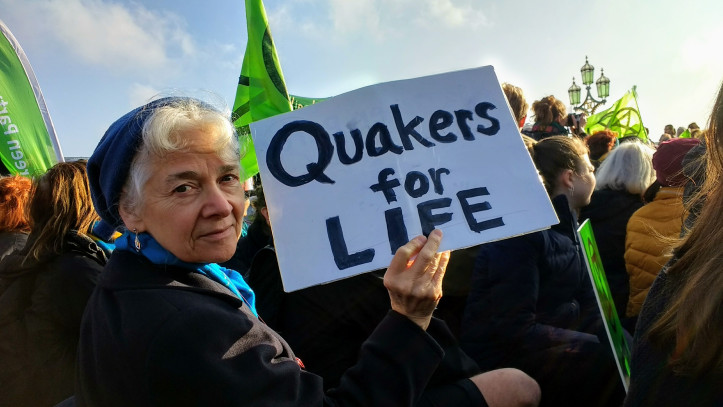
Quakers in Britain issue a call for “leaders of integrity and conscience" and for Donald Trump's first UK state visit, the Quaker Socialist Society hosts a meeting for worship against Trumpism before joining national demonstrations.
In one year, Turning the Tide East Africa trains over 1000 grassroots peacebuilders across Kenya, Rwanda and Burundi. Since receiving training, young people in Rwanda have set up 14 school Peace Clubs to address violence between students and stigma towards young mothers.
Friends House Hospitality
launch the Bake the Difference programme with the London Pathways Partnership. Bake the Difference provided training and support to people who have a diagnosis of personality disorder and a history of breaking the law to support reintegration into society.
Brighton Quaker Lyndsay Burtonshaw faces trial as part of the Stansted 15 for preventing a mass immigration deportation flight in 2017. When the case goes to trial in Chelmsford, local Quakers open their meeting house to the Stansted 15, offering accommodation, food, and moral support for their action, which
saves lives.
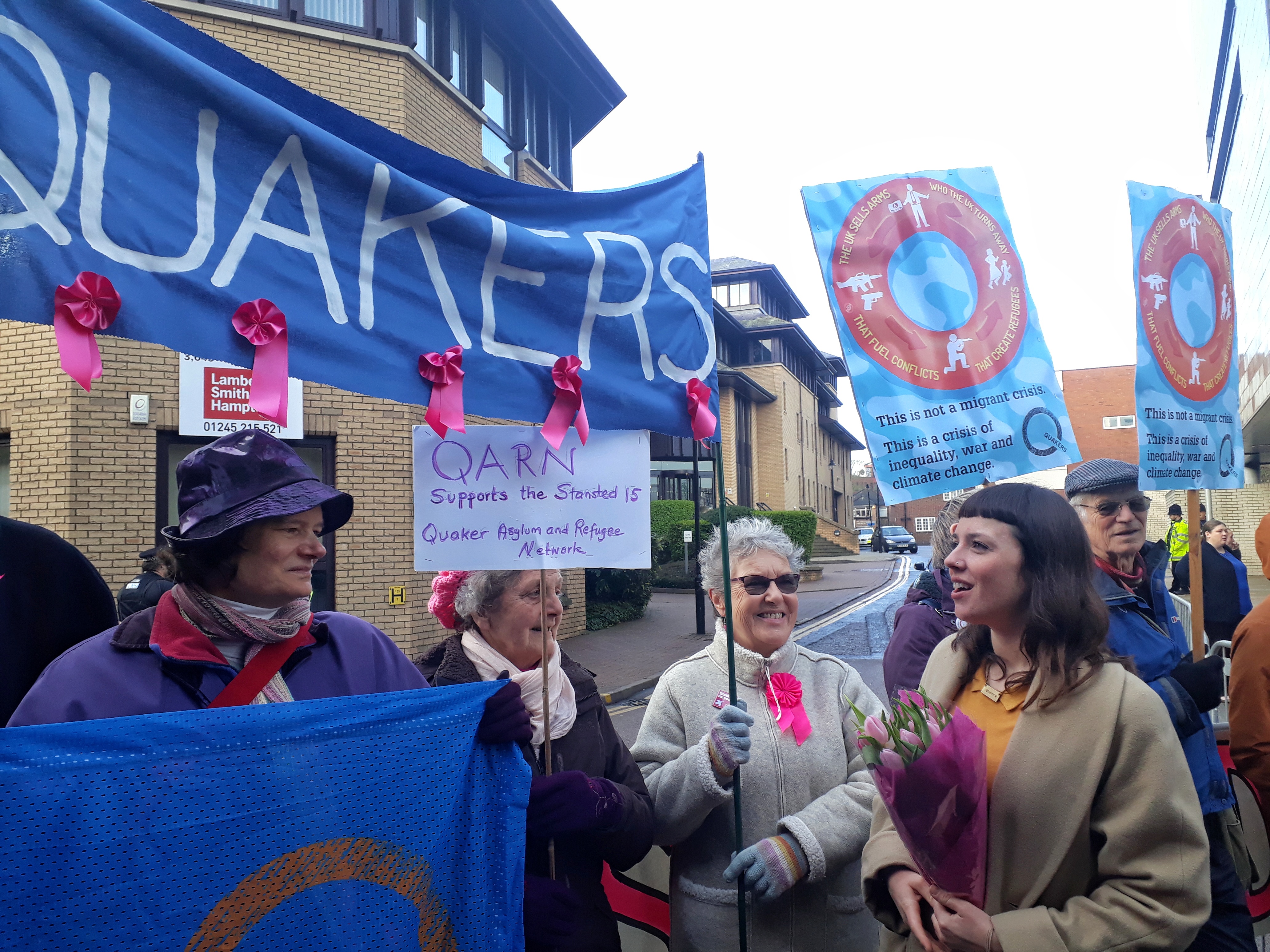
Tens of thousands of schoolchildren participate in Remembrance for Peace events around Britain, supported by the Quaker Peace Education programme. The events mark the centenary of the end of WWI and look ahead at how we can help build a more peaceful world.
Quakers in Britain becomes the first church in the UK to state that it will not invest any of its central funds in companies that profit from Israel's illegal occupation of Palestine.
In 2019
There are now
over 100 Sanctuary Meetings active in Britain, working in their communities to counter the government's 'hostile environment' and walk alongside people seeking the right to remain in the UK.
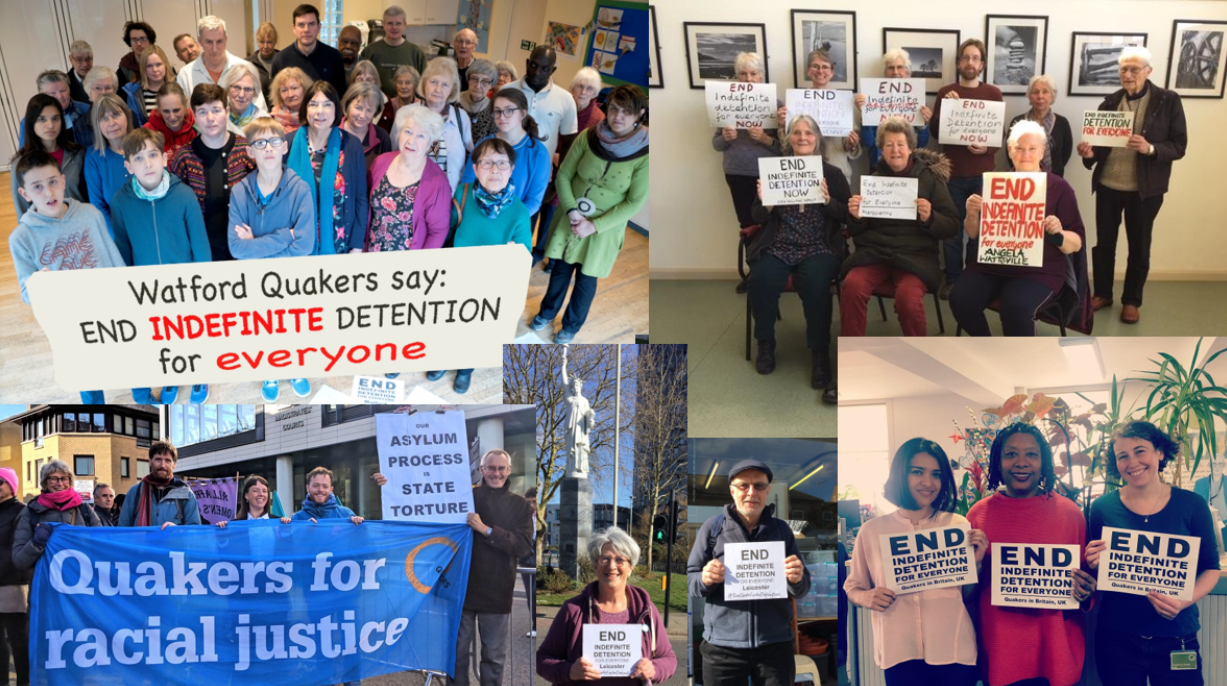
Thousands of Quakers join or support the waves of climate action across Britain, from Extinction Rebellion's Easter, Summer and Autumn Uprisings, to Fridays 4 Future youth climate strikes, to travelling to Westminster to lobby their MPs in person.
Youth climate strike leader Greta Thunberg speaks at Friends House, and Quaker school striker Anya Nanning Ramamurthy
calls for climate justice alongside national faith leaders at Church House, saying “We must build the world as we want to see it. God is within every one of us and therefore we must act like it".
The Quaker Council for European Affairs (QCEA) release Race and Privilege in Europe (PDF), a publication that invites Quakers and others to 'see racism afresh' and consider the ongoing legacies of colonialism.
The Scottish government passes legislation to criminalise the physical assault of children in Scotland. Quakers in Scotland and The Church of Scotland work together to support the 'smacking ban', providing faith-led evidence.
Quakers in Britain publish
Razor Wire & Olive Branches, an Israel/Palestine peace education pack for secondary school pupils. The resource is the first of its kind to explore the conflict through the lives of those affected by it.
Around 600 Quakers and allies block access to the DSEI arms fair in London by holding meetings for worship in the road. Supported by newly established grassroots Quaker network,
Roots of Resistance, around 50 Friends are arrested as they nonviolently protest the arms trade.
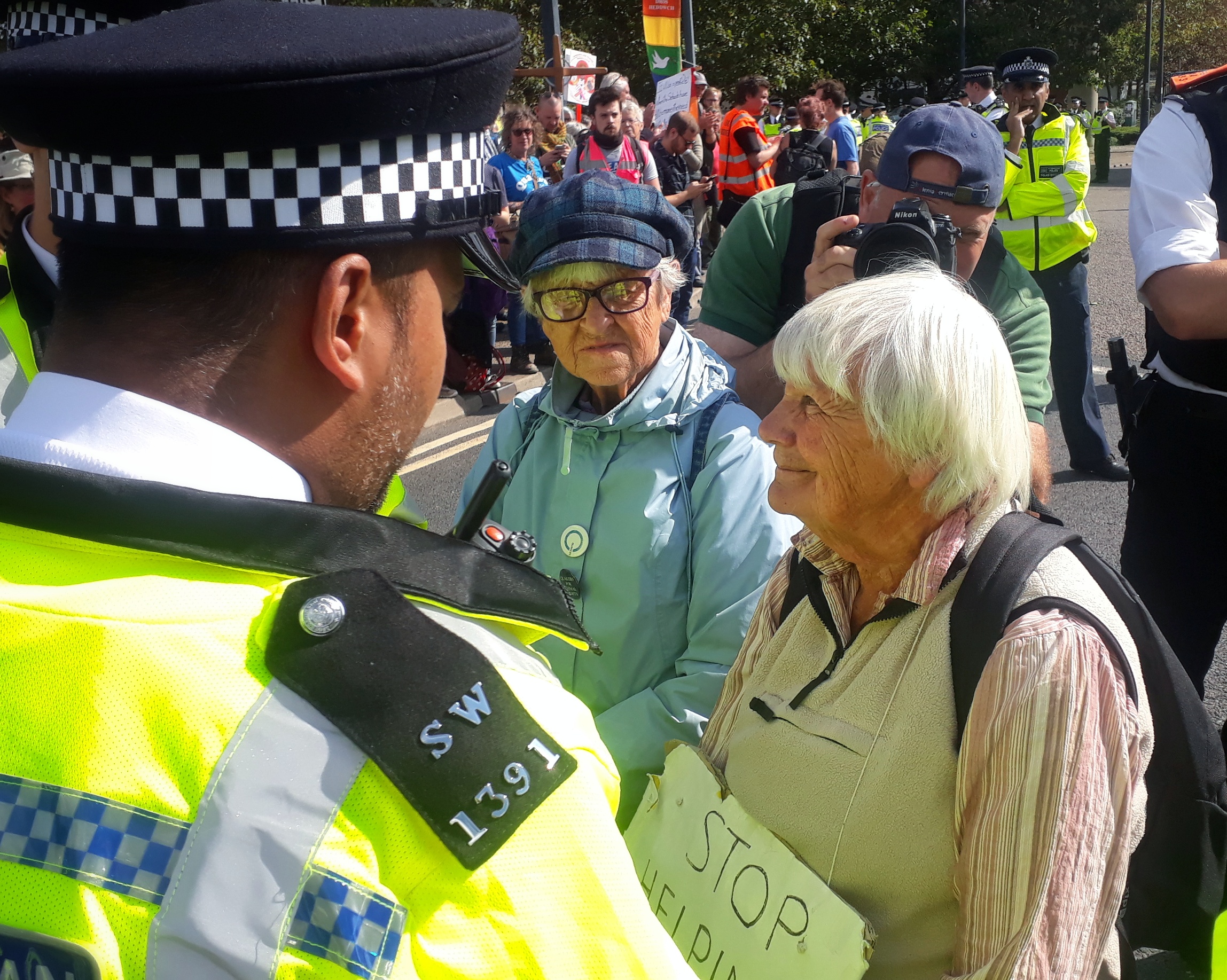
And finally, as part of the corporate response to becoming a low carbon community, Quakers in Britain open Seed Kitchen, a vegetarian and vegan restaurant in central London where ingredients are sourced within 100 miles wherever possible.
